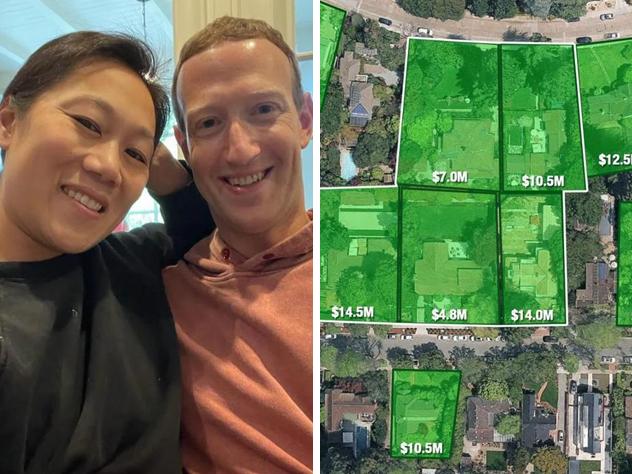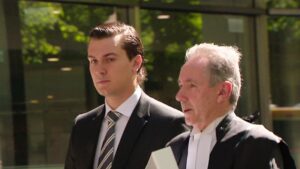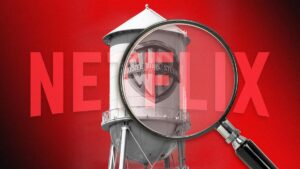
For years, Crescent Park in Palo Alto epitomized the charm of California’s suburban life with its leafy streets and friendly neighborhood gatherings. However, residents now claim their peaceful enclave has turned into a real-life Monopoly board, with Meta CEO Mark Zuckerberg purchasing numerous properties in the area.
Since his arrival in 2011, Zuckerberg and his wife, Priscilla Chan, have acquired at least 11 properties along Edgewood Drive and Hamilton Avenue, spending over USD $110 million (AUD $168 million). Five of these homes have been integrated into a private compound for the couple and their three daughters, featuring guesthouses, lush gardens, a pickleball court, and a pool with a hydrofloor cover, according to reports by the New York Post.
Zuckerberg’s Expansive Estate
The couple’s compound also includes nearby structures that function as an entertainment hub and a staging area for outdoor events. More controversially, it houses a private school for 14 children, which violates city zoning codes.
At the heart of the compound stands a 7-foot silver statue of Chan, commissioned by Zuckerberg. Beneath it lies 7,000 square feet of underground space described in permits as basements, but neighbors refer to them as bunkers or “a billionaire’s bat cave.”
Community Disruption and Surveillance Concerns
The ongoing construction, spanning eight years, has caused significant disruption in the neighborhood. Heavy equipment has clogged streets, blocked driveways, and, according to residents, even knocked mirrors off parked cars.
Surveillance has become another point of contention. Neighbors report cameras directed towards their yards and security guards stationed in vehicles, filming visitors and questioning pedestrians on public sidewalks.
“No neighborhood wants to be occupied,” said Michael Kieschnick, a resident whose Hamilton Avenue home is surrounded on three sides by Zuckerberg’s properties. “But that’s exactly what they’ve done. They’ve occupied our neighborhood.”
City records reveal 56 permits have been approved for Zuckerberg-owned properties since his move-in, raising questions about the influence of wealth on local governance.
Local Governance and Public Response
Critics accuse city officials of bending to the tech titan’s will. In one instance, police established a tow-away zone for several hours to facilitate a family barbecue hosted by the Zuckerbergs.
The discontent dates back to 2016 when Zuckerberg proposed demolishing four adjacent homes to replace them with smaller houses and large basements. Although the Architectural Review Board rejected the proposal, construction proceeded piecemeal, circumventing another public hearing.
Former board member Peter Baltay recalled, “I said, ‘I’m standing on the sidewalk looking at this project for review.’ He said, ‘Well, we’d appreciate it if you could move on.’ I was pretty shocked by that.”
Greer Stone, a Palo Alto City Council member, expressed concerns over the situation, stating that Zuckerberg has “been finding loopholes around our local laws and zoning ordinances,” and warned against becoming “a gated, gilded city on a hill where people don’t know their neighbors.”
Efforts to Mitigate Tensions
Despite the tensions, the Zuckerbergs’ spokesperson, Aaron McLear, emphasized that the couple has taken steps beyond local requirements to minimize disruption, citing credible security threats as the reason for their protective measures.
“Mark, Priscilla, and their children have made Palo Alto their home for more than a decade,” McLear stated. “They value being members of the community.”
Not all interactions have been negative. Security guards now use quiet electric cars, and while Zuckerberg skips the annual block party, he sent an ice cream cart last year. Before major events, staff have delivered goodwill gifts, including sparkling wine, chocolates, and noise-cancelling headphones.
However, for residents like Kieschnick, the sense of community has been difficult to restore. “Billionaires everywhere are used to just making their own rules — Zuckerberg and Chan are not unique, except that they’re our neighbors,” he remarked. “But it’s a mystery why the city has been so feckless.”
The unfolding situation in Crescent Park highlights broader issues of wealth, influence, and community dynamics, raising questions about the future of neighborhoods in the face of significant financial power.






